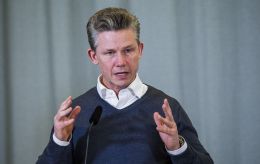100 km from Beirut: How IDF soldiers defending Israel on the Lebanon border
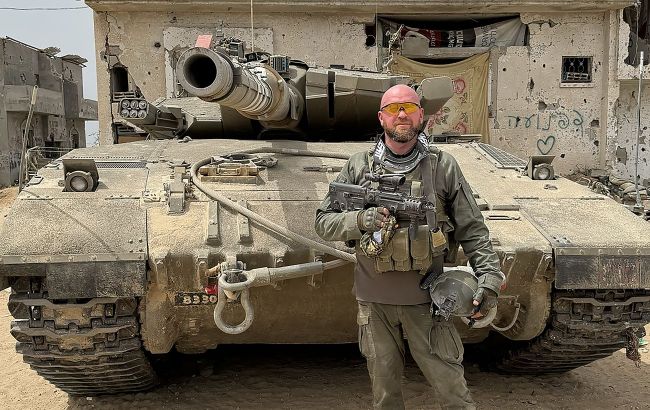 Photo: Medic and military serviceman Roman Goldman (provided to RBC-Ukraine)
Photo: Medic and military serviceman Roman Goldman (provided to RBC-Ukraine)
Israel continues its ground operation in Lebanon, eliminating Hezbollah terrorists. What goals Israel aims to achieve, and how service in the IDF resembles the work of defenders in the Ukrainian Armed Forces during wartime - details in the RBC-Ukraine report.
Roman Goldman serves in an elite unit of the Israeli Defense Forces (IDF), tasked with rescuing downed pilots and performing medical evacuations from the battlefield. Currently, he is stationed around a hundred kilometers from Beirut, the capital of Lebanon. On September 23 this year, Israel launched Operation Northern Arrows against Hezbollah militants. Its ground phase has been ongoing since October 1.
In an interview with RBC-Ukraine, Roman Goldman described Israel's military operation in Lebanon, the specifics of service in the IDF's medical unit, and the common enemies of Ukraine and Israel.
Common hidden enemy. Situation on the Israel-Lebanon border
The aim of the Israeli army's operation in southern Lebanon is to destroy the military infrastructure and missile capabilities of Hezbollah terrorists, who pose a security threat to Israel. A significant feature of Israel's military strategy is to minimize the scale of combat to avoid harming the Lebanese civilian population, prevent a full-scale conflict, and restrict operations to targeted strikes.
"I am stationed in northern Israel, near the Lebanese border. Israel launched a preemptive operation after months of shelling from Lebanese territory initiated by Hezbollah. Israeli forces act with high precision to protect their civilian population in the country's north," Roman told RBC-Ukraine.
Video: Roman Goldman on serving in the Israeli army and assistance to Ukraine during the war (youtube.com/RBC-Ukraine)
The current operation in Lebanon against Hezbollah militants is sometimes referred to in the media as the Third Lebanon War, contrasting with the first (1982) and second (2006). The root of all these conflicts lies in the widespread refusal in the Arab world, including at the official level, to acknowledge Israel’s existence as a state, as well as disputes over specific territories.
"Unlike our previous conversation, which dealt with the Gaza Strip and the city of Sderot, the situation and nature of service here differ. Following the elimination of Hezbollah leaders, we see far fewer militants - they have either retreated or dispersed. The combat now resembles guerrilla warfare, with skirmishes and long-range attacks," Roman explained.
Soldiers entering this area anticipated a different kind of warfare, expecting larger-scale ground clashes. They knew the enemy was strong, though not as powerful as the Israeli Defense Forces. In Lebanon, Israeli soldiers have found that militants offer minimal resistance.
"Losing their leaders, terrorist organizations crumble like a house of cards. After the elimination of Hezbollah leader Said Nasrallah, the organization weakened and has been unable to restore its strength," he added.
Thanks to Israel's operation in Lebanon, tens of thousands of Israelis may return to the border areas that Hezbollah has shelled for months. But one of the most crucial goals, according to Roman Goldman, remains the release of hostages captured by terrorists and held in the Gaza Strip. The exact number of surviving hostages remains unknown, but bringing them back is essential.
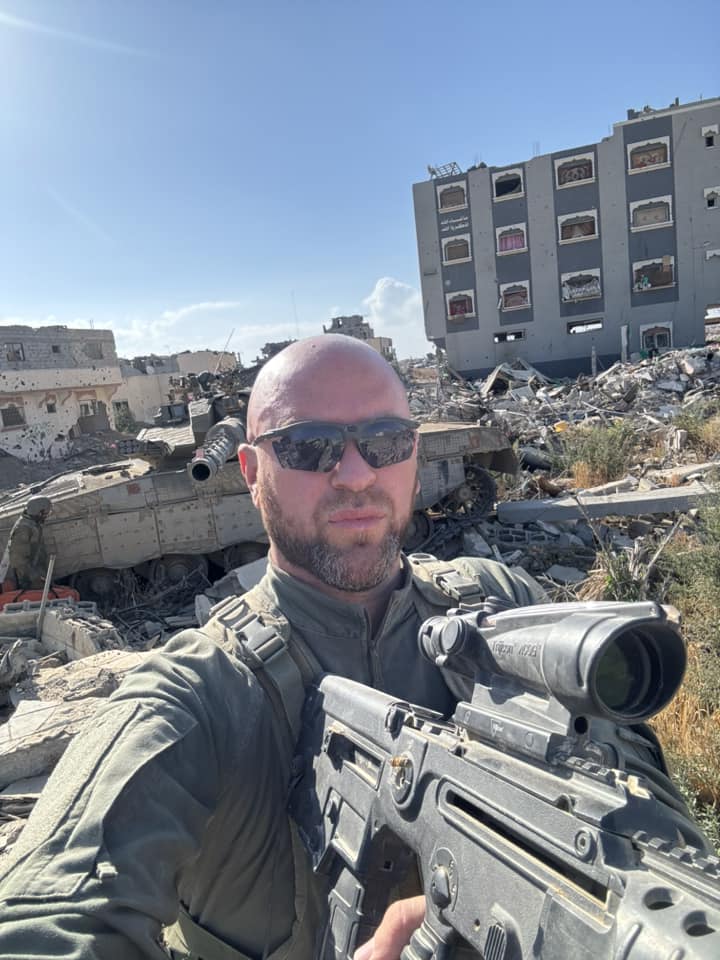
Roman serves in a unit responsible for evacuating pilots and other soldiers from the battlefield (photo provided to RBC-Ukraine)
"By conducting the operation in Lebanon, we are defending ourselves. The troops are not engaging in any actions against Lebanese civilians, our neighbors. The goal is to eliminate Hezbollah militants, an organization supported and funded by Iran. This is a clear enemy - an enemy of ours and our colleagues in the Ukrainian Armed Forces, a foe to our Ukrainian brothers. Iran supplies deadly weapons and Shaheds (to both Russia and Hezbollah terrorists - Ed.). Using these weapons, the Russian army now attacks Ukraine," the soldier emphasized.
Through the operation in Lebanon, the Israeli army has achieved several objectives that have weakened terrorist infrastructure. Numerous tunnels built by Hezbollah in southern Lebanon have been discovered and destroyed. These tunnels allowed militants to move freely and posed a security threat to Israel’s border regions.
The IDF has eliminated top Hezbollah leaders and hundreds of militants. They have captured many positions, weapons depots, and rocket launchers aimed at Israel.
"I believe the operation's results are very positive. Israeli soldiers found numerous tunnels constructed similarly to those in the Gaza Strip. They also uncovered weapons that had been smuggled in from Syria and Iran. As an IDF soldier, I can say that the Israeli Defense Forces are satisfied with these outcomes," Roman concluded.
'Golden hour' for did: Work of medics in the Israeli army
Military medics in the Israeli Defense Forces (IDF) carry out various tasks on the front line. They promptly provide medical aid to the wounded on the battlefield, stabilizing injured individuals before evacuation. Additionally, they train soldiers in first aid and life-saving skills for extreme conditions.
Without revealing all of their duties on the front, Roman Goldman shares some details about the daily operations of a special medical unit that evacuates soldiers from the battlefield.
"We have a 'golden hour' from the moment a soldier is injured, during which we need to provide the necessary aid while evacuating them from the battlefield. If needed, we provide emergency care directly on site. Within an hour, we transport them to a hospital. Sometimes, we use helicopters or other specialized vehicles for this," says Goldman.
Interestingly, medics in Israel work not only at stabilization points and hospitals but also accompany soldiers in combat. Some doctors are assigned to combat battalions, where they work side by side with the fighters, providing aid to wounded soldiers and civilians alike.
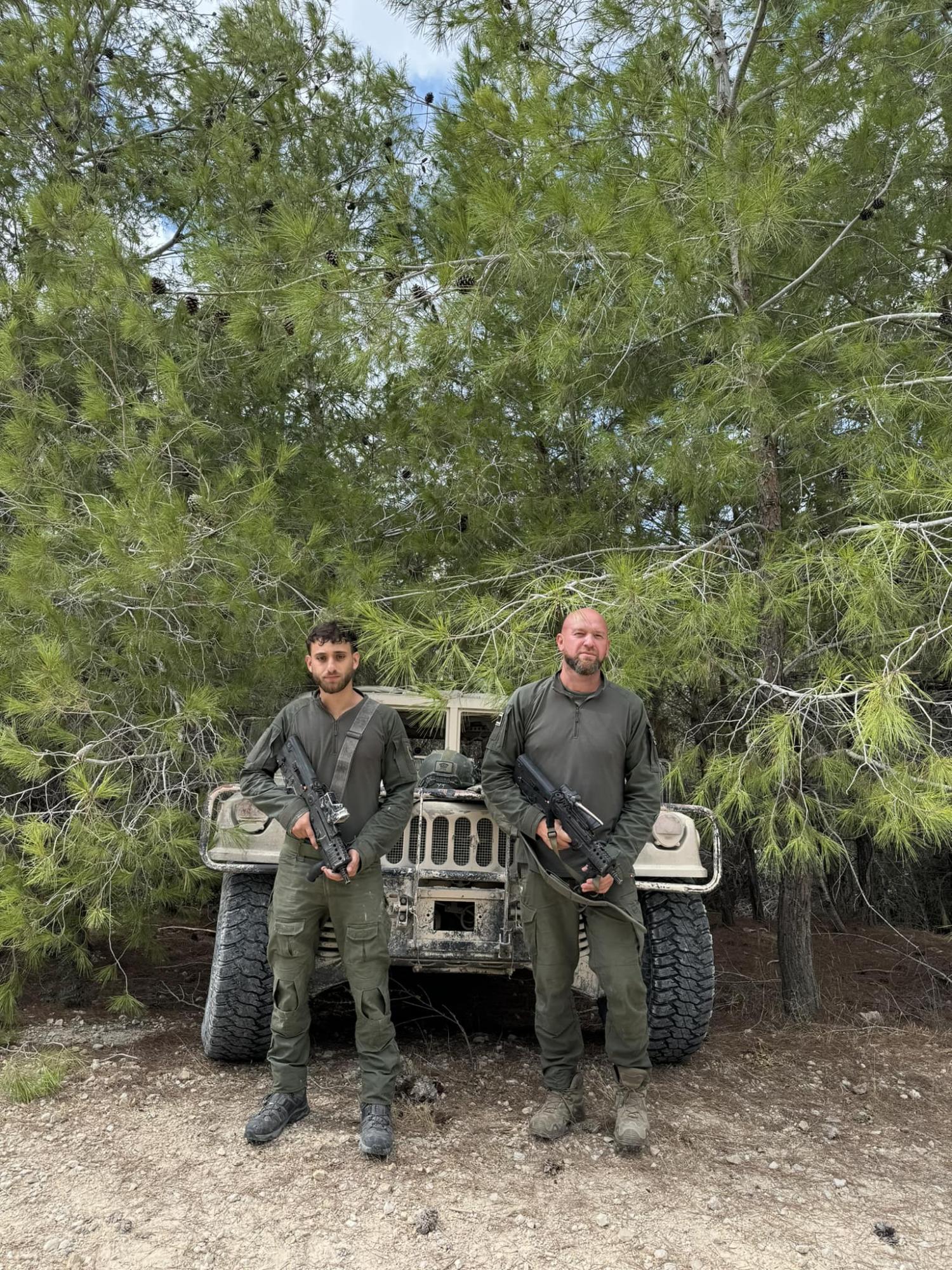
Aid for military personnel is well-organized in the Israeli army (photo provided to RBC-Ukraine)
One unique aspect of the army’s medical service is that the best doctors take part in military operations, according to Roman. The IDF includes doctors of all statuses - professors, academics, interns, and lab technicians. Every combat unit has a doctor who goes on missions with them.
"These are doctors who left their departments and mobilized with a combat unit to defend the country. On average, there is one medic for every 59 soldiers, ensuring comprehensive medical coverage. Medics are fully equipped, even with equipment for blood transfusions. Blood is stored in special cooling containers, and thanks to blood bank supplies, stocks are regularly replenished. This setup minimizes casualties among the wounded," Goldman shares, highlighting the strengths of the army.
Israeli army medics are known for their ability to provide medical aid under extreme conditions. Israeli field hospitals have received the highest WHO rating for their rapid deployment and full range of medical services in challenging conditions.
In Israel, all military personnel return to civilian life after mandatory service but remain in the reserves. When reservists are mobilized, they join their original units and serve with the same people, creating a close bond and sense of mutual support.
"Essentially, all Israeli medicine relies on reservists. In times of war, doctors remove their white coats, put on uniforms, and go to the front, often to the most dangerous hotspots. High-ranking doctors with years of experience accompany soldiers in combat. Israel is a small country where every citizen matters, and life here is valued very highly," he adds.
Volunteer missions to the front and contract service for doctors
Ukraine is far from a foreign country for Roman Goldman. Here, he founded the Ukrainian-Israeli volunteer medical mission, FRIDA Ukraine. For over 2.5 years, mission doctors have been traveling to front-line areas in Ukraine, where they examine patients and provide free medical care. The team consists of Israeli and Ukrainian medical volunteers who help thousands of Ukrainians affected by the war.
The missions in Donetsk, Kharkiv, and other regions include medical specialists in various fields. Endocrinologists, cardiologists, and pediatricians are among those who see patients.
Roman believes that Israel’s experience in organizing medical support for military personnel could be useful in Ukraine.
"I believe that a hybrid model, where Ukrainian doctors could go to combat zones for one to two months and then return to their civilian work, could work well in Ukraine. For doctors, signing a multi-year service contract is a radical decision because they are primarily civilian and scientific professionals, not military personnel. A hybrid system, where Ukrainian doctors are called up for limited periods, would help save numerous lives," he explains.
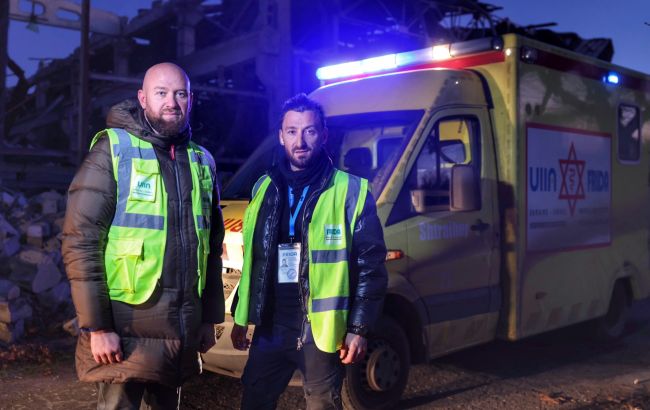
FRIDA Ukraine volunteer missions in Ukraine’s front-line areas (photo provided to RBC-Ukraine)
Even amid hostilities in Israel, some Israeli doctors find the time to travel to Ukraine for humanitarian missions. Recently, for instance, an Israeli anesthesiologist returned from a mission in Donetsk. The project continues to operate in 10 regions, including Sumy, Kherson, Donetsk, and Zaporizhzhia.
Roman Goldman hopes that when the intense phase of the conflict in Israel ends, he will have the opportunity to visit his Ukrainian colleagues to support them and personally thank them for what they are doing for Ukrainians.
Service in the Armed Forces of Ukraine (AFU) has many similarities to how the military operates in Israel, says Goldman. Just like Ukrainian soldiers, statistics in Israel show a high rate of lower limb injuries, as shelling and explosions often lead to shrapnel wounds.
"During operations, our units encounter mined areas littered with grenades and explosive devices. Most injuries are shrapnel-related. In this respect, the situation is similar to that in Ukraine, where soldiers often sustain similar injuries," Goldman adds.
IDF soldiers take inspiration from the AFU
Active hostilities between Israelis and Arabs began even before the official declaration of the State of Israel in 1948. Israel won the 1947-1949 war, defending its statehood. Since then, there have been two major wars between Israel and a coalition of Arab countries: the Six-Day War in 1967 and the Yom Kippur War in 1973, both of which Israel won.
This does not include Israel’s many years of facing smaller-scale military conflicts, prolonged periods of Palestinian terrorist attacks, and various other confrontations.
According to Roman, many IDF soldiers draw inspiration from the defenders serving in the Ukrainian Armed Forces. He believes that over the past decade, Ukraine’s army has made significant strides in development. Ukraine and Israel share medical protocols and procedures, particularly in military medicine.
"Israel has been in a state of conflict for over 75 years, amassing extensive experience. At the same time, we speak with great respect about our colleagues in the Ukrainian Armed Forces and admire them. Building a military structure takes time. Israel is in a constant state of acute conflict. Ukraine, however, has quickly become one of the world’s top ten most advanced and powerful armies. Our shared mission is to protect our homes and people, and we do so just as Ukrainians do, defending their territories 24 hours a day," Roman emphasizes.
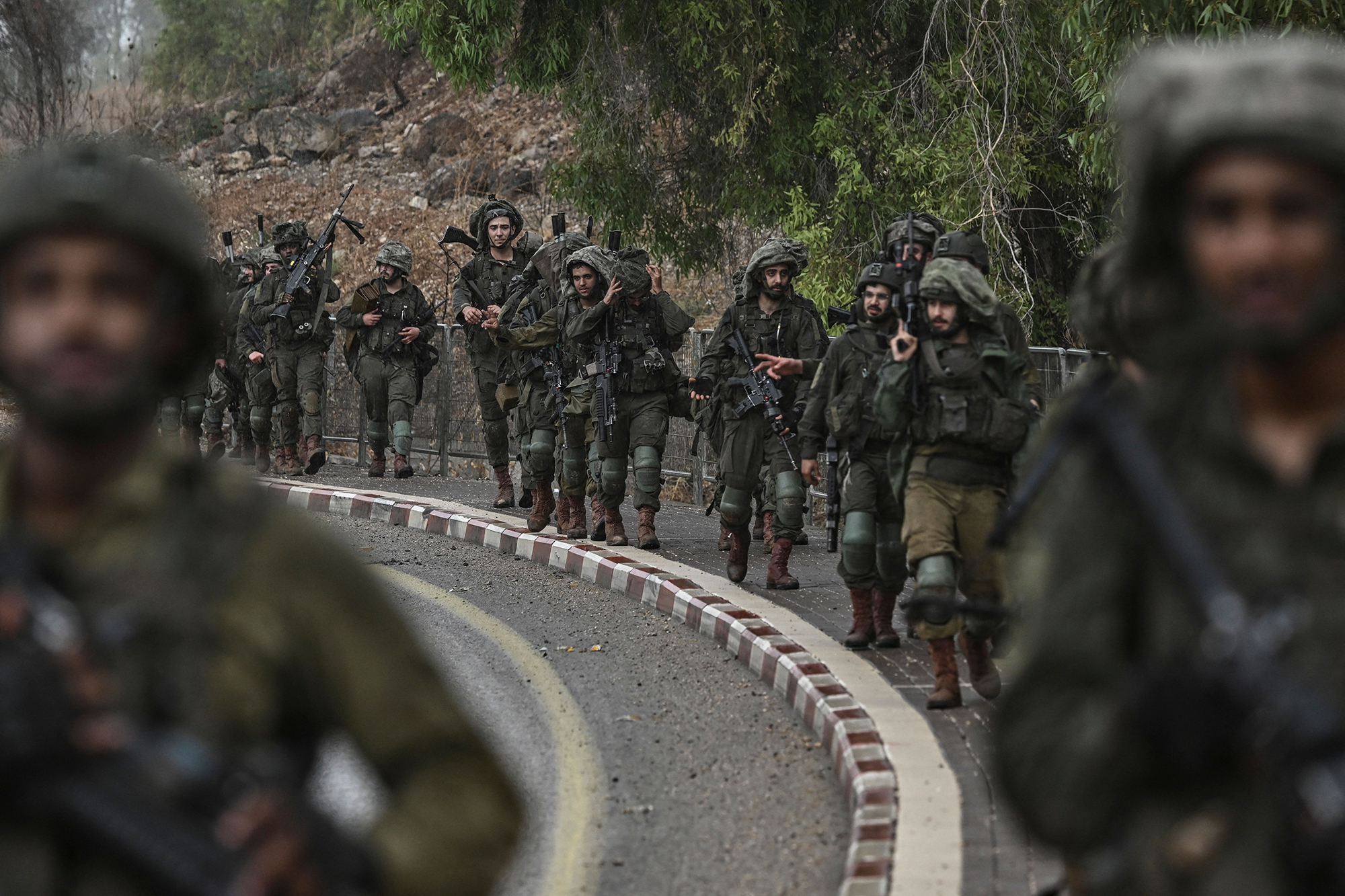
In the IDF, commanders go on missions alongside their subordinates (Photo: Getty Images)
Roman dreams of a swift end to the wars in Israel and Ukraine.
"I’ve heard of cases in Ukraine where people bribe or forge disability documents to avoid military service. People pay outrageous sums to stay out of the army. I’ve never encountered this in Israel; the mobilization rate is around 180%. Even those with health issues want to participate in defending their country, even if they can only do small tasks like cleaning floors," he notes.
He believes that effective communication with people can help to understand that military service is an opportunity to contribute to victory. Effective dialogue between the authorities and the people can help overcome many fears that arise from a lack of information.
"I know the Ukrainian people well. They are highly patriotic! A people with great spirit! If information is properly conveyed, mobilization rates will be impressive. Ukraine is a young state with a progressive army. I am confident that Ukraine will be successful, especially in its military efforts - 100%," Roman affirms.
He expresses his respect and admiration for Ukrainian defenders.
"To the Ukrainian military, I simply want to say that the whole world is proud of you. I can imagine how tough it is for you. Stay strong! Good will triumph over evil. You are amazing, truly incredible! And to all Ukrainians, I want to say that a strong home front is crucial for your loved ones on the front lines. Don’t give up, don’t seek easy paths or temporary relocation. It’s essential to focus on supporting your country and doing everything possible for it," he concludes.
